Ian Walker: In control of his own destiny
Published on March 16th, 2015
Ian Walker, skipper of Abu Dhabi Ocean Racing, sits atop the Volvo Ocean Race leaderboard after four of nine legs. Scuttlebutt editor Craig Leweck caught up with Ian before the start of Leg 5 from New Zealand to Brazil…
When you skippered your first Volvo Ocean Race in 2008-9, you were quite new to offshore sailing. Now in the midst of your third edition, are you feeling some degree of expertise?
Yeah, I guess the more you do, the more you learn, and the more you know. And before you know it, you’re an old fart and you’re an expert [chuckles]. I think expert implies some kind of competency. But I guess I know a lot more than I did when I started.
In the last race, with the boat we had, I was so frustrated because I didn’t feel we could really demonstrate how good we were as a team. And I don’t think anybody could really judge how good we were or not. With our lack of boat speed, we sort of weren’t in the race. So for this race, I guess there was a bit of pressure on me with one-design, to prove that we did sort of know what we were doing.
So at the moment obviously it’s going all right, and that’s quite satisfying. It kind of feels as if it rights a little bit of the wrongs as it were, from previous races. But we’re only just getting started on this, so we got to make sure we keep it up.
In your training prior to the race, did you have a feeling that you could be leading this race overall at this stage?
Well, I felt very good. From the moment we got the team together in February, we stuck to the original plan. We didn’t have any setbacks in terms of breakages or injuries or– there was nothing that derailed us from our schedule. And that felt good. We rolled out the plan we had. So as long as our plan was okay, we were going to be just fine.
We did the round the Isle of Wight Ultimate Challenge, which we won in light air, then we did the Round Britain race, which we won pretty convincingly in strong wind. So that I guess was a boost of confidence. But that was in two very specific conditions and it was pretty early on.
But I remember being interviewed in Alicante before the start, talking to our sponsors and I said, “Look, we’re going to be just fine. I can’t say we’re going to win the race. But I am very, very confident we’re going to be strong. I don’t know how strong everybody else is. I don’t know whether we’re going to be better or worse than the other strongest teams, but I’m very confident that we’re going to be in a good space.” And that’s sort of what we’ve seen.
We did a lot of data collection and really worked hard to try and improve our performance on different points of sail and improve our polars and crossovers before the race start. I thought we’d be further ahead maybe than we were, but I think the reality is that until you start sailing against other boats, you really don’t learn that much. So I think everybody is learning very fast. I think that we’ve all had a lot to learn as the race has gone on.
And I think the team that wins the race at the end is probably going to be the team that has learned the most from Alicante to Gothernburg. And the gap is closing between the teams, in terms of who did the most training and who did the least training before the start. We’ve seen that with MAPRE performing better and Alvimedica looking stronger.
So yeah, in answer to your question I knew we were going to be okay, I just didn’t know exactly where we were going to be in the pecking order. But I knew we were going to be one of the stronger teams.
At this stage of the race, what have you found about this edition to be the most interesting?
I think first and foremost, it’s just nice to be competitive. Last race, if we had a boat on the horizon behind us, 24 hours later they are on the horizon in front of us. So it was pretty hard to race them. We were basically zooming around ignoring all the rest of the fleet just trying to take any hunch we could to give us a chance.
So I think what I’m enjoying more this time is being competitive, actually racing like everybody else in terms of the effect of sailing five degrees lower or just being in the hunt really. And doing better I guess has made a huge difference.
But I think the second thing is the learning, just constantly racking your brains on what you can do better and just knowing that if somebody else is going faster than you, it’s something they’re doing better than you that you can correct. So you’ve got to find that variable. Is it boat trim, where you’ve got the gear? Are we trimming too hard on the main? Is the jib lead too far in or out or up or down, or the keel cant, or whatever it might be. You have the belief that there’s something you can do better, whereas before, it was easy to just throw your hands in the air and say, “That boat’s faster than me reaching,” or, “They’ve got a better sail than us and hopefully the wind angle will change.”
So that’s the biggest difference. It’s knowing that you’re in control of your own destiny, if you like. And it makes you a better sailor. It makes you learn and makes you a better sailor, because you have to. We’re sailing the boats nothing like we were at the start of the race. We’ve changed so much since the start of the race, from what we’ve learned when we’ve been near other boats.
This is Part One of a three part series with Ian Walker. More to come.


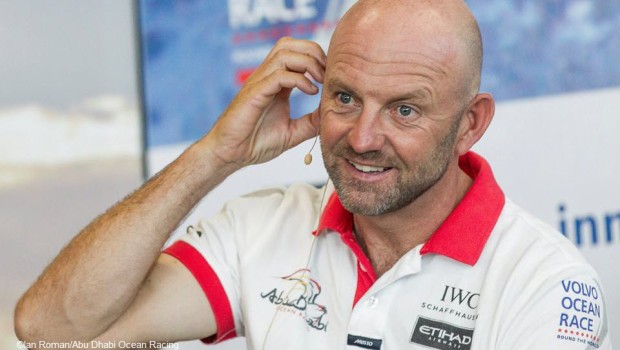


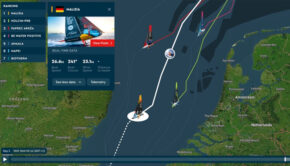
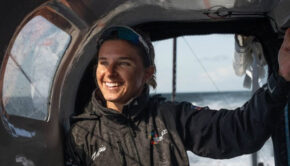
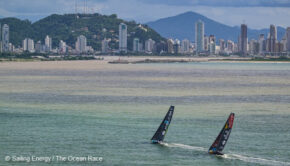
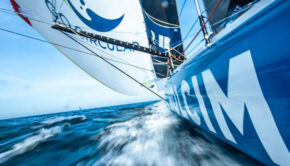
 We’ll keep your information safe.
We’ll keep your information safe.